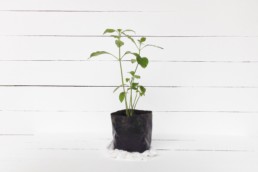‘Pain points’ is a term often used in marketing. It refers to pain that a potential customer might be experiencing in their life or business. It’s used as a way to identify how a company, product or service might be able to heal that pain.
But lately I’ve been thinking… What if marketers, copywriters, social media managers, storytellers (myself included) and the companies that employ us are actually causing more pain than we heal? What if the work we do is creating pain points out there in the world. Real pain in the real world. Not some perceived ‘pain point’ that can be solved by a nifty product or a piece of software?
This idea came crashing into my mind thanks to Lauren Quaintance , co-founder of Storyation, who wrote a thought-provoking article on LinkedIn about the simmering discontent with content. You should read it.
We all know that the internet and social media are saturated with ‘content’. There’s far more content than we could possibly consume in a lifetime, yet we hungrily devour as much of it as we can from the moment we wake to the moment we go to sleep. We love it. We can’t get enough. But it’s making us unhappy. It’s making us anxious. It’s making us lonely. It’s making us depressed.
This is real-world pain experienced by real people on a global scale.
Lauren included these insights in her article:
- A new study from the University of Pennsylvania has established a direct causal link between social media use and loneliness and depression.
- Not only does social media make us less happy, ironically it makes us feel more isolated and less connected to our fellow human beings.
- And we’re more isolated than ever. The average person now reports having just one close friend – down from three friends in the 1980s.
- The 24/7 news cycle makes us anxious and depressed and more likely to catastrophise about our own day-to-day problems.
- Meanwhile, there’s a growing backlash against technology and not using a screen is increasingly seen as a status symbol.
And yet, us marketers and content creators are doing everything we can to get more people to click, watch, listen, and buy. We call it ‘engagement’ or ‘conversions’. And we call people ‘leads’ or ‘customers’. It’s all very un-human-sounding.
If we were seen to be contributing to a person’s anxiety or depression in the real world, it wouldn’t be acceptable. Yet, we’re potentially doing this from behind screens, in social media posts, and via aggressive, targeted marketing campaigns. Maybe I’m doing it now, by adding to the wave of content that’s crashing through your consciousness today?
Now before you misinterpret this as an attack on marketing, it really isn’t. It’s a challenge to think about how we do things. To think about the types of content we’re creating and how we’re promoting it. To think about how we might be contributing to people’s pain. I think we have a responsibility to be mindful of the impact we’re having on the world and on other people. And I think there is untapped potential to truly contribute to healing real-world pain.
How? I don’t have the answer, sorry. But I think Lauren is on the right track:
“What does that all mean for marketers? To my mind the brands that will succeed will tap into a need for human stories, for human connection, in a way that is seen as a force for good.” – Lauren Quaintance, Storyation
I know that not everyone cares enough and money makes the world go around. But I’m convinced that the creators and companies that take heed of these awful statistics about how content saturation and social media addiction are contributing to suffering, and pivot to more mindful marketing practices and a more human-centred approach to storytelling, will find success there.
You could compare it to the sustainability movement a decade ago. The companies that realised they were contributing to the destruction of the environment and were early to adopt sustainable business practices are celebrated as pioneers today.
I think the same will be true of companies who realise they’re contributing to the suffering of people and adopt mindful marketing practices. As Lauren says, “Who Cares Wins”.




